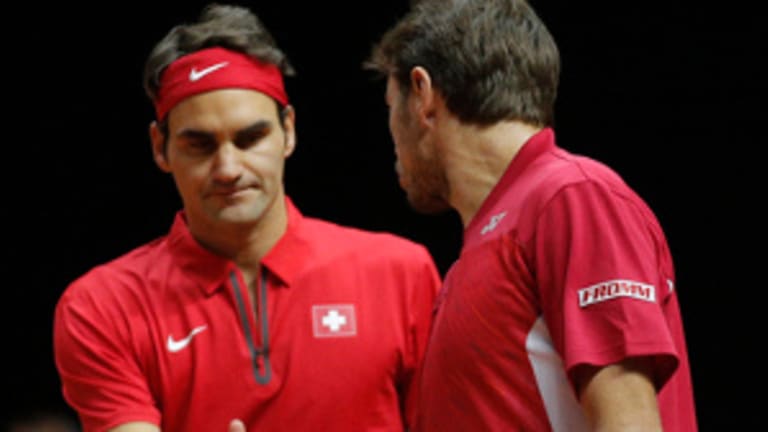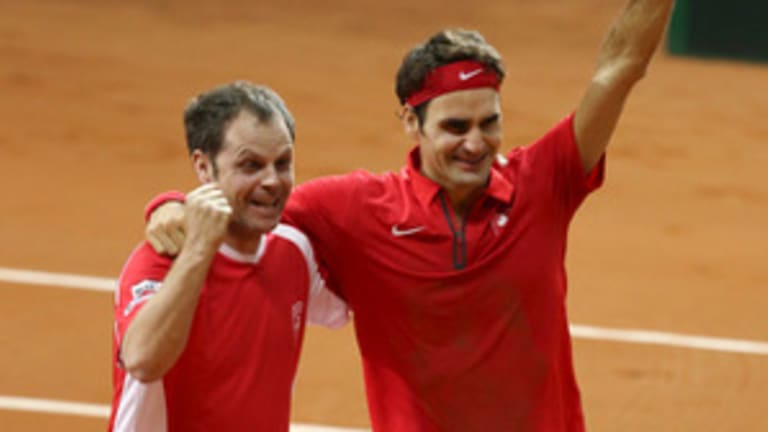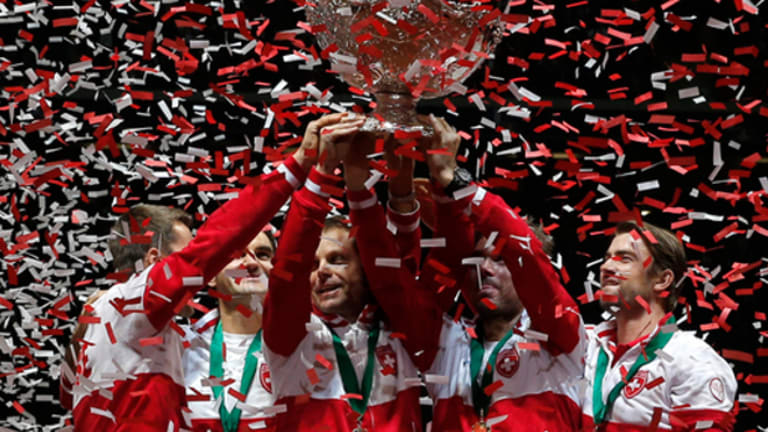Roger Federer’s soaringly emphatic victory over Richard Gasquet in France on Sunday couldn’t have been more fitting. With it, Federer clinched the first Davis Cup in Switzerland’s history, and won the only remaining major tennis title that had eluded him in his 16-year career. In the process, he punctuated a season of resurgence with some of his finest tennis of the last 12 months, and succeeded in doing the one thing he had failed to do during that time: Win the big one. For Federer and his teammates, the last match of 2014 came with many levels of closure.
"Teammates," Federer soon made clear, was the operative word in that last sentence. When he picked himself off the clay after the last point and dried his tears, he didn't say anything about what the victory meant to him personally.
“I’m happy I was able to stay calm and play a good match," he told a TV interviewer on court. "Stan [Wawrinka] has put in so much effort over the years and played an unbelievable weekend that gave me the opportunity today. I’m very much aware of that. This one is for the boys.”
Federer was aware that while the columns and headlines will hash out what the win means for his legacy, this Swiss team wasn’t really about him. From 2004 to the start of 2014, Federer played just one World Group main-draw tie with them. He showed up long enough to keep Switzerland from dropping out of the Cup’s top tier, but it was left to the others, led by Wawrinka, to try to do more. Federer has a much better record than Wawrinka in the competition—coming into this tie, Federer was 49-17, while Stan was just 25-25. But it was Wawrinka who was there to play, and lose, a seven-hour doubles match to the Czechs last year in Geneva. He was there to play, and win, a fifth rubber over Lleyton Hewitt in Australia in 2011. He was there, in Astana in 2010, to suffer a 5-0 humiliation to Kazahkstan.
He was also, at times, fed up with not having Fed at his side.
“Roger has been saying for years that he wants to play the Davis Cup and it’s important,” Wawrinka said when Federer declined to play for Switzerland in 2013, “but apparently that’s not the case...Davis Cup is not a priority for him at the moment.”
It was Wawrinka, in short, who was there to play for the Swiss when the odds were against them. Federer rejoined the team in 2014, when the odds were suddenly in their favor. This February, he made a surprise, virtually unannounced appearance to play his second opening-round tie in nine years, against the Serbs. By the time he had flown to Belgrade, it was too late for Novak Djokovic, who had skipped the tie, to do anything about it. The Swiss left the Serbs in the dust, then took advantage of a favorable draw that kept them at home against Kazakhstan and Italy in the quarters and semis.


